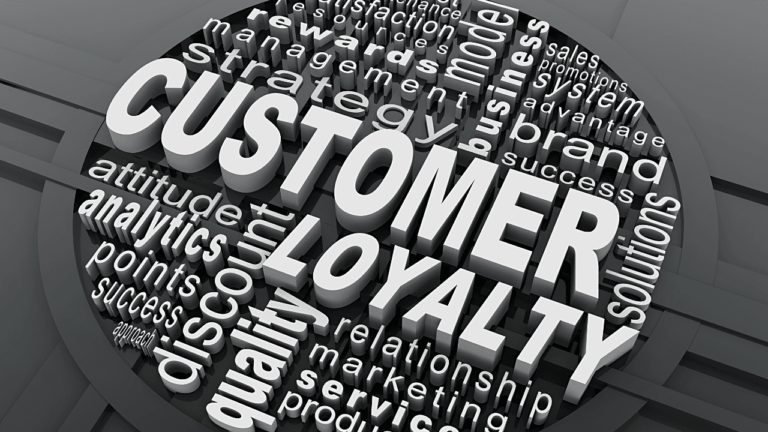What is Corporate Marketing? (With Strategies for Improvement)
Corporate marketing is a philosophy that focuses on customers, stakeholders, society, and ethical responsibility. It’s embraced throughout an organization and becomes a part of its culture.
A corporate marketing strategy centers on a cohesive narrative that ties together all aspects of a business, from its values and culture to its products and services. This narrative creates a strong brand identity that customers can recognize and relate to.
This article will discuss what corporate marketing is, compare it with product/service marketing, identify the critical ingredients for an effective strategy, and explore the future of this fast-evolving field.
Key Takeaways
- Corporate marketing promotes the company as a whole through branding, advertising, and public relations, shaping its perception and influencing customer behavior.
- Corporate marketing nurtures the overall brand identity, while product/service marketing focuses on specific offerings’ features and benefits.
- Effective corporate marketing involves brand positioning, reputation management, stakeholder engagement, thought leadership, information marketing, corporate social responsibility (CSR), and integrated marketing communications.
What is Corporate Marketing
Corporate marketing refers to the strategic initiatives a company undertakes to promote and position the company as a whole – its values, culture, and overall brand image.
The approach focuses on branding, advertising, and public relations to market research and analysis. It’s mainly about creating an image for a company that leaves a lasting impression on the target audience.
The beauty of corporate marketing is that it allows you to shape how others perceive your brand. This can significantly impact customer behavior when done right, leading to increased sales velocity and market share.
Corporate Marketing VS. Product/Service Marketing
Imagine you’re building a majestic garden. Your company’s brand represents the lush, green landscape that ties everything together. Meanwhile, each product or service is like an individual flower adding color and detail to the overall beauty.
In this metaphor, corporate marketing focuses on cultivating the entire garden. It creates an environment where each flower can thrive and contribute to a stunning visual experience.
Meanwhile, product/service marketing specifically targets nurturing and promoting those flowers to showcase their unique features and charm.
Corporate marketing establishes your brand identity by highlighting your company’s values, goals, culture, and vision. This builds a strong foundation for all your products or services. It also makes it easier for customers to understand what sets you apart.
On the other hand, product/service marketing zeroes in on the specific attributes of each offering. This includes benefits, pricing structure, and unique selling points.
All targeted corporate marketing campaigns are designed to reach potential customers most likely interested in that particular product or service.
Corporate and product marketing play crucial roles in your success.
Corporate marketing builds trust through consistent messaging about who you are as a company and what you stand for. Product marketing drives sales by attracting attention to specific offerings tailored for different fragments of your target audience.
Now let’s see what makes a corporate marketing strategy effective so that your entire garden blooms with brilliance.
What Makes a Corporate Marketing Strategy Effective?
Back to our metaphor. Cultivating a thriving brand garden requires an effective strategy encompassing your company’s core values and vision.
An effective corporate marketing strategy differentiates your brand from competitors and fosters long-term relationships with customers and stakeholders.
Here are the key factors that contribute to a winning corporate marketing strategy:
Brand Positioning
Your brand positioning differentiates you from competitors.
Carefully crafting a unique selling proposition (USP) and consistently communicating it across all marketing channels will help establish a clear and appealing identity.
To do this effectively, identify the core values and attributes that make your company stand out while considering the needs and desires of your target market.
Once you’ve pinpointed what sets you apart, infuse those characteristics into every aspect of your marketing efforts – from advertising to messaging tactics.
This consistency will help build familiarity and trust among potential customers, making them more likely to choose you over competitors when making purchasing decisions.
Don’t forget to keep an eye on industry trends and adapt accordingly. Staying ahead of the curve will ensure your brand positioning remains relevant and engaging in the ever-changing business landscape.
A solid brand positioning extends beyond customer attraction. It can also have a significant impact on employee morale and motivation.
When the corporate marketing team understands their organization’s purpose and vision, they’re more likely to feel invested in its success – which translates into higher productivity levels and increased job satisfaction.
Reputation Management
Managing one’s reputation bolsters credibility and trustworthiness and paves the way for lasting customer loyalty and brand admiration.
Reputation management is an essential aspect of a corporate marketing strategy that focuses on building, maintaining, and protecting your company’s image in the eyes of your target audience.
In a digital age, neglecting your online presence can have severe consequences—negative reviews or unfavorable press can spread quickly and damage your brand’s reputation.
Here are four crucial elements to keep in mind when focusing on reputation management:
- Monitor online mentions: Regularly track what people say about your company on social media platforms, review sites, and other digital channels.
- Address negative feedback promptly: Respond to criticism empathetically and professionally to demonstrate that you care about resolving customer issues.
- Share positive stories: Highlight customer success stories or showcase awards and recognitions to build a favorable image for your brand.
- Cultivate relationships with influencers with well-respected industry experts, coaches, or influencers can boost your credibility by association.
By proactively addressing potential challenges while amplifying positive aspects of your brand, you’ll create an environment where customers feel heard, valued, and confident in their decision to engage with your company.
Stakeholder Engagement
Engaging with stakeholders is crucial for building trust and fostering long-lasting relationships that fuel your company’s growth and success.
Stakeholders include employees, customers, suppliers, investors, and even the communities you operate in.
Prioritizing their needs and addressing their concerns through open communication channels demonstrate your commitment to their well-being and your willingness to collaborate effectively.
This helps build credibility for your brand while promoting a positive image of your organization.
To develop an effective stakeholder engagement strategy, do these steps:
- Step 1: Identify your key stakeholders and learn what motivates them.
- Step 2: Research their values, preferences, expectations, and pain points to ensure that your marketing efforts resonate with them.
- Step 3: Tailor messaging to address specific needs or concerns they might have while highlighting how partnering with your company can help them achieve their goals.
- Step 4: Organize events or workshops that enable face-to-face interactions where possible. This will foster stronger bonds between stakeholders and provide valuable insights into their perspectives.
Stakeholder engagement strengthens relationships and creates opportunities for collaboration and brand innovation that drive value for all parties involved.
Remember that maintaining these relationships requires ongoing effort. Prepare to adapt as new challenges arise or priorities shift over time.
Thought Leadership and Content Marketing
Demonstrating thought leadership and leveraging content marketing elevates your brand’s credibility and solidifies your position as an industry expert, fostering trust and attracting valuable stakeholders.
As you share insightful articles, engage in public speaking engagements, or release informative whitepapers on pertinent topics within your industry, you showcase your company’s expertise and provide valuable resources to potential clients, partners, and investors.
To make the most of thought leadership and content marketing efforts, ensure that your content is relevant to your audience’s needs and interests while aligning with your corporate marketing objectives.
Stay up-to-date on market trends and emerging issues to create timely content that addresses current challenges businesses face in your sector.
Collaborate with other reputable organizations or experts when producing such materials. This helps reinforce the notion that you are a go-to authority in the field.
Implementing these strategies can increase brand recognition, strengthen relationships with key stakeholders, enhance customer loyalty, and ultimately increase revenue growth.
As important as it is to demonstrate expertise through thought leadership initiatives and effective content marketing campaigns, it’s equally crucial for companies today to have a robust corporate social responsibility (CSR) program.
This will further strengthen stakeholder trust while positively impacting society at large – an essential component of any successful corporate marketing strategy moving forward.
Corporate Social Responsibility (CSR)
It’s crucial for your company’s success to embrace a robust Corporate Social Responsibility (CSR) program, as this not only boosts your brand image but also fosters trust among stakeholders and contributes positively to society.
A well-implemented CSR strategy helps you engage with customers and employees deeper, promoting loyalty and advocacy from both groups.
While differentiating yourself from market competitors, you highlight your commitment to ethical business practices.
Benefits of CSR:
- improved public image
- increased customer loyalty
- enhanced employee engagement
- greater market differentiation
Components of an Effective CSR Program:
How do you create an effective CSR program encompassing all responsible management aspects? The answer lies in understanding the key components that makeup such a program.
Ethical Sourcing and Supply Chain Management
Companies must prioritize ethical sourcing and supply chain management. It not only ensures fair treatment of workers but also reduces negative environmental impacts.
Responsible procurement practices ensure that your products and services are sourced from suppliers who adhere to ethical labor standards, protect human rights, and maintain environmental stewardship.
In doing so, your company will take a stand against exploitative practices such as child labor, forced labor, and hazardous working conditions.
Moreover, you’ll build stronger relationships and foster stakeholder trust by actively engaging with your suppliers to promote transparency and continuous improvement.
Prioritizing ethical sourcing and supply chain management strengthens your company’s reputation while paving the way for environmental sustainability initiatives in the next section.
Environmental Sustainability Initiatives
Another critical component of an effective CSR program is the implementation of environmental sustainability initiatives.
A company must take responsibility for its operations’ environmental impact and commit to reducing its carbon footprint, adopting sustainable practices, and mitigating climate change.
Companies can set sustainability targets such as reducing energy consumption, waste reduction, increasing the use of renewable energy, and reducing greenhouse gas emissions.
Sustainability must be integrated into all aspects of the business, including operations, product development, marketing, and branding.
Implementing eco-friendly practices demonstrates a commitment to preserving the environment for future generations.
Community Outreach and Philanthropy
Effective CSR programs include community outreach and philanthropy. This component involves giving back to the community and supporting local initiatives and causes.
You can establish partnerships with non-profit organizations, donate a portion of their profits to charity, or offer volunteer opportunities for employees.
Choose initiatives that align with your company’s values and goals. Nothing is too little to make a difference in your community.
The more involved you become, the more significant impact you’ll have on both your company’s reputation and the lives of those around you.
Integrated Marketing Communications
B2B integrated marketing communications is the strategic coordination and integration of various marketing communication channels and tools to convey a consistent and unified message about the corporate brand to the target audience.
It aligns advertising, public relations, sales promotions, direct marketing, digital marketing roadmap, and other communication efforts to create a cohesive brand image.
Here’s a breakdown of IMC for corporate marketing:
- Brand Messaging: Develop a clear and compelling brand message that reflects the corporate values, mission, and unique selling proposition. This message should be consistently communicated across all marketing channels.
- Advertising: Create advertisements that showcase the corporate brand and its core values. Advertisements can be placed in traditional media (TV, print, radio) and digital platforms (websites, social media, online banners).
- Public Relations: Develop PR strategies through media coverage, press releases, events, sponsorships, and corporate social responsibility initiatives.
- Content Marketing: Create and distribute valuable and relevant content that aligns with the corporate brand’s messaging. This can include blog posts, articles, white papers, videos, and infographics to engage and educate the target audience.
- Digital Marketing: Leverage digital platforms such as social media, email marketing, search engine optimization (SEO), and B2B PPC advertising to reach and engage the target audience. Use consistent branding and messaging across these channels.
- Direct Marketing: Use direct marketing techniques like direct mail, personalized emails, and targeted promotions to reach specific customer segments. The corporate brand’s messaging and identity should be consistent in these communications.
- Sales Promotions: Develop promotions and incentives that align with the corporate brand’s image. This can include discounts, contests, loyalty programs, or partnerships to encourage customer engagement and drive sales.
- Employee Communication: Internal communication is crucial for maintaining a consistent corporate brand image. Ensure that employees understand the brand message and are brand ambassadors in their interactions with customers and stakeholders.
The Future of Corporate Marketing
It’s impossible to ignore the rapid evolution of modern advertising, especially when you consider that global ad spending is predicted to reach a staggering $836 billion by 2026.
As corporate marketing continues to evolve, you’ll need to adapt and stay ahead of the curve to maintain relevance and effectiveness in your marketing strategies.
The future of corporate marketing will likely be defined by several key trends, including increased personalization, data-driven decision-making, and an even greater focus on diversity and inclusion.
Conclusion
In the cutthroat business world, success is a tough nut to crack for any organization. However, the doors to growth and achievement open wide for those who can leverage corporate marketing.
Corporations thrive through effective brand positioning, reputation management, stakeholder engagement, thought leadership and content marketing, corporate social responsibility (CSR), and integrated marketing communications.
As markets evolve, corporate marketers must stay updated with new technologies, trends, and best practices. Continuous learning and innovation will help companies stay ahead of the competition and drive long-term success.
FAQs
Here are other frequently asked questions about corporate marketing that we have not answered above. This will help you further your research.
How does corporate marketing support a company’s public relations efforts?
Corporate marketing supports a company’s public relations efforts by aligning messaging, managing brand reputation, and leveraging marketing channels to communicate effectively with the target audience and stakeholders.
What ethical considerations are essential in corporate marketing practices?
Ethical considerations in corporate marketing include:
1. honesty and transparency in messaging
2. respecting consumer privacy
3. avoiding misleading or deceptive advertising
4. promoting products or services that align with ethical standards
How can companies adapt their corporate marketing strategies to changes in consumer behavior?
Companies can adapt their corporate marketing strategies by:
1. monitoring consumer trends
2. leveraging technology
3. personalizing marketing messages
4. embracing digital platforms
5. continuously analyzing and adjusting their approaches.







